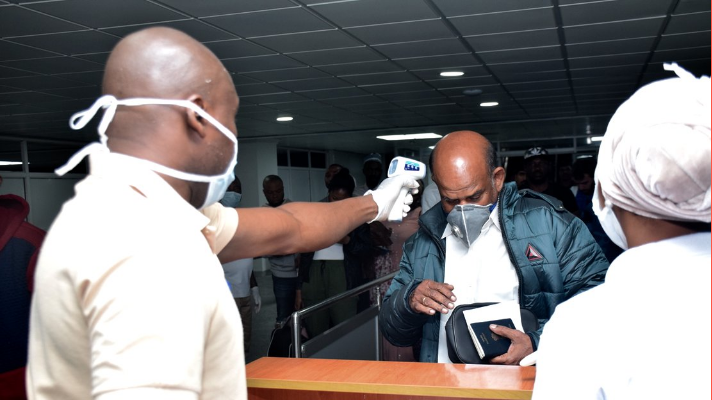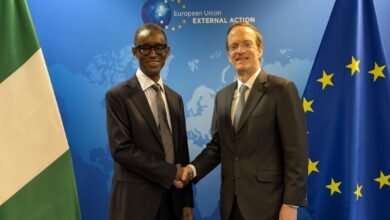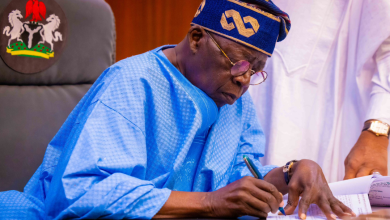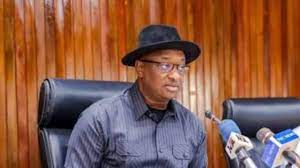
By Abubakar Sidiq Usman
Yesterday, the leadership of the National Assembly called for a meeting with the Minister of Finance, the Minister of State for Petroleum, CBN Governor and the NNPC GMD to discuss the economic crisis resulting from Covid19 and declining oil prices.
The outbreak of #COVID19 and the Crude Oil price war between Russia and Saudi Arabia has greatly impacted the country’s economic realities and projections with consequential effects in virtually all sectors of the economy.
Crude oil prices for example plunged to as low as $22/b leading to huge revenue loss. It has also resulted to disruption in international travel & trade, deterioration in demand for good & services as a result of social distancing.
There is also the disruption in global supply/output chains resulting in weaker demand and low commodity prices and increase pressure on the naira and our foreign reserves.
Overall, this means potential job losses, challenges in meeting budget deficit deliveries, project slippages, economic growth at very slow speed and less money available in the economy.
This is a global problem that demands global attention but because of specific impacts peculiar to Nigeria, the country is also taking measures locally to cushion the impacts while hoping for global solutions.
Already, the country has responded by introducing interest rate cuts on all applicable CBN intervention facilities from nine per cent to five per cent, N20 cut from the price of PMS and a one year moratorium on loan servicing.
There is also the creation of a N50 billion targeted credit facility through the NIRSAL Microfinance Bank for households and small- and medium-sized enterprises (SMEs) that had been particularly hard hit by Covid-19.
Additionally, the crisis management committee constituted by President Muhammadu Buhari to address the issues emanating from the global economic disruptions and Covid19 crisis is proposed an Integrated Policy Framework.
The framework, which will culminate in the review of the Medium Term Expenditure Framework and the FGN 2020 budget with a new oil price benchmark of $30/b will contain many cost saving measures and stimulus packages.
Most of these proposals which will require legislative approval, thus the need for the meeting between the executive and the legislature will include
1. increase revenue by reducing NNPC’s expenditures associated with oil. This reduction will include cuts of PMs under-recovery payment from 457.5bn to Zero.
2. Reduce other federally funded upstream projects such that aggregate NNPC deductible expenditures are cut by 53%.
3. Revise 2020 budget using a $30 per barrel price benchmark to prepare for the worst case scenario, but oil production volume will remain at 2.18mb/per day.
4. Accelerate marginal field late and other licensing rounds.
5. Ramp up oil production on shit down wells.
6. Reduce budgeted customs revenues from N1.5tr to N943bn.
7. Cut privatization proceeds by 50% from N252bn to N126bn.
8. Reduce MDA’s Administrative Capex by 20%.
9. Reduce administrative Capex and overheads for top 10 GOEs in FGN 2020 budget by 25%.
10. Apply similar cost cutting measures to all other GOEs and thereby increasing FGN revenue by N67bn.
11. Control the fast growing personnel cost by efficiency measures such as non-essential recruitment.
12. Restructure the Social Investment Programme.
13. Design and launch other policy measures to be agreed with the strategic MDAs.
14. Provide fiscal relief for Tax payers and Key Economic sectors.
15. Incentivize employers to retain and recruit staff during the economic downturn.
16. Stimulate investment in Critical Infrastructure stimulate investment in critical infrastructure.
17. Review non-essential tax waivers to optimize revenues
18. Complement Monetary and Trade Interventions to respond to the crisis.
The framework is to be complemented by a fiscal stimulus package to cushion the impact of the crisis on most vulnerable individuals and communities through a number of initiatives.
Some of these packages, incentives and law proposed include Granting job creation tax rebates for employers, Accelerating the construction of over 70km of Ross and bridges under Road Infrastructure Tax Credit Scheme and Review of sectors eligible for pioneer tax holidays.
Others include negotiation of a break on debt servicing with multilateral and financial institutions, import duty waiver for essential input for pharmaceutical firms, tax waiver on new health equipment, deferment of tax to increase production.
There is also the release of N6.6bn in two tranches to NCDC to fight Covid19, release of N1bn for pharmaceuticals firms and the release of N10bn was o support Lagos State govt’s effort to combat Covid19.
The implementation of tax holidays and import duty waivers in the AGRIC sector to enhance production and job creation and accelerating the ease of doing business-related reforms are also part of many other stimulus packages.
In moments like this, we have to understand that the problem is not peculiar to Nigeria and that the support and cooperation of all is needed to help the country weather the storm. This is what a good working relationship between the executive and the legislature is all about.




